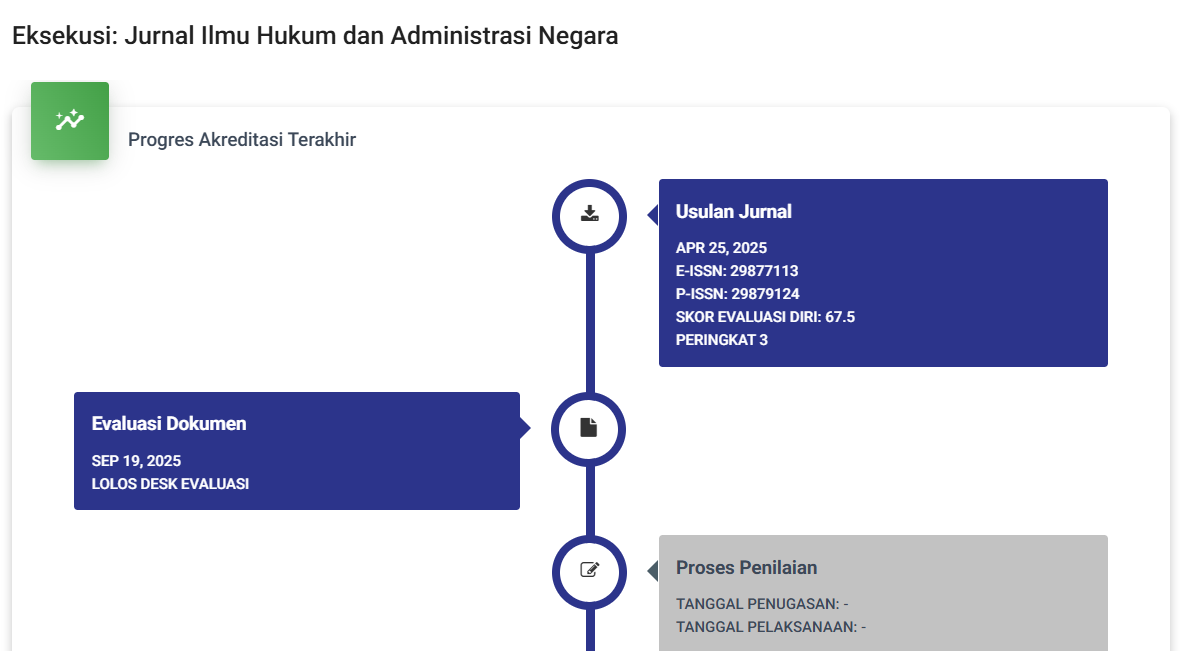Analisis Penyebab Diselenggarakannya Pemungutan Suara Ulang (PSU) Di Provinsi Jawa Timur Tahun 2024
DOI:
https://doi.org/10.55606/eksekusi.v2i2.1132Keywords:
Voting, General Election, Decision-makingAbstract
The research that we conducted has the aim of knowing the causes of the Re-voting (PSU) ini the 2024 simultaneous general elections in East Java. Aiming to see what factors are behind the PSU. This research was conducted to see the decisions making carried out by Bawaslu in handling allegations of fraud that occurd during the 2024 election process. With the aim of knowing the process in making decisions for organizing PSUs. The method used is qualitative with a literature study approach to collect data to conduct in-depth alaysis which is then presented in the form of a literacy that is useful for adding information to readers and can also be used to make considerations in every decision-making process when facing a problem. The emergence considerations in the form of re-voting is mentioned when a whole process of analyzing various reports, information and data obtained by the Regional Election Supervisory Committee has been carried out. The report willlater be used as basic evidence related to all findings of fraud in the implementation of elections that violate laws and regulations. So that information about the occurrence of these violations will be the cause behind the PSU based on Article 372 paragraphs (2) of Law Number 7 Year 2017 cencerning elections. Things like this should be prevented trough actions that have been taken by the government long before the implementation of the 2024 elections and supported by the organizing committee and election participants can understand the rules regarding the implementation of voting until the time the vote count is carried out.
References
Aditya, E., Mardani, R. M., & Hufron, M. (2020). Pengaruh Profitabilitas, Likuiditas, dan Ukuran Perusahaan Terhadap Kebijakan Dividen Perusahaan Manufaktur Periode 2016-2018. E-Jurnal Riset Manajemen.
Anwar, H. (2014). Proses Pengambilan Keputusan untuk Mengembangkan Mutu Madrasah. Nadwa: Jurnal Pendidikan Islam, 8(1). https://doi.org/10.21580/nw.2014.8.1.569
Hastie, R., & Dawes, R. M. (2010). Rational Choice in an Uncertain World: The Psychology of Judgement and Decision Making. In SAGE Publications (Issue 2).
Payne, J. W., Bettman, J. R., & Johnson, E. J. (1988). Adaptive Strategy Selection in Decision Making. Journal of Experimental Psychology: Learning, Memory, and Cognition, 14(3). https://doi.org/10.1037/0278-7393.14.3.534
Ridwan, S., Sari, H., & Suryana, E. (2015). Sistem Pendukung Keputusan Untuk Menentukan Relawan Terbaik Di Pmi Kota Bengkulu Menggunakan Metode Simple Additive Weight (Saw). JURNAL MEDIA INFOTAMA, 11(1). https://doi.org/https://doi.org/10.37676/jmi.v11i1.251
Sondang P, S. (1983). Organisasi, kepemimpinan dan perilaku administrasi. Gunung Agung.
Sunawar, A., Sekolah, R., Pertama, M., Pasar, M., & Tangerang, K. (2020). Proses Pengambilan Keputusan Kelompok: Fenomenologi Penggunaan Teknik Rasional SDIT Muhammadiyah Pasar Kemis Tangerang. Jurnal Literasi Pendidikan Nusantara, 1(1).
Sumber Lain:
Peraturan Komisi Pemilihan Umum Nomor 8 Tahun 2020. (n.d.). https://peraturan.bpk.go.id/Details/173394/peraturan-kpu-no-8-tahun-2020
KPU RI. (2022). Peraturan Komisi Pemilihan Umum Nomor 8 Tahun 2022 Tentang Pembentukan Dan Tata Kerja Badan Adhoc Penyelenggara Pemilihan Umum dan Pemilihan Gubernur Dan Wakil Gubernur, Bupati Dan Wakil Bupati Dan Walikota Dan Wakil Walikota. Peraturan Komisi Pemilihan Umum.
Negara, K. S. (2017). Undang-Undang Republik Indonesia Nomor 7 Tahun 2017 tentang Pemilihan Umum. 182.





